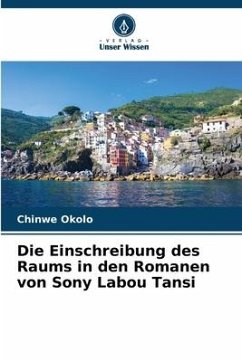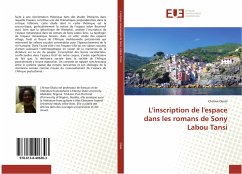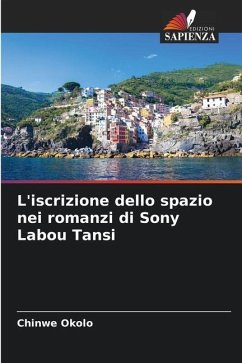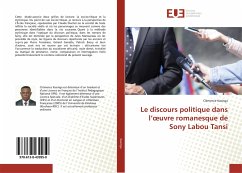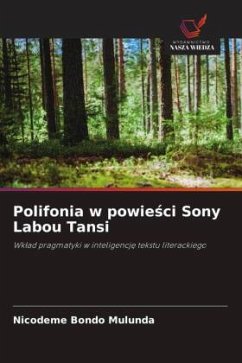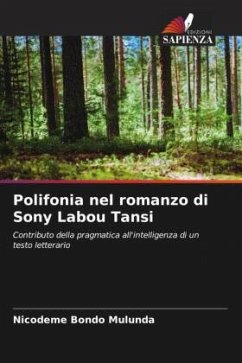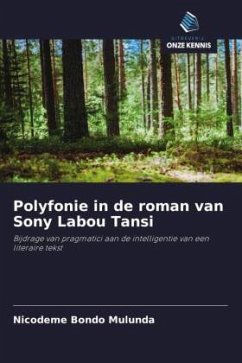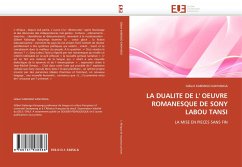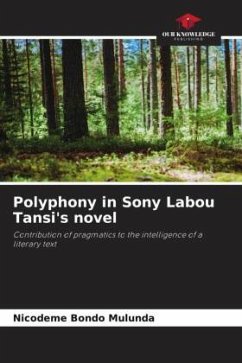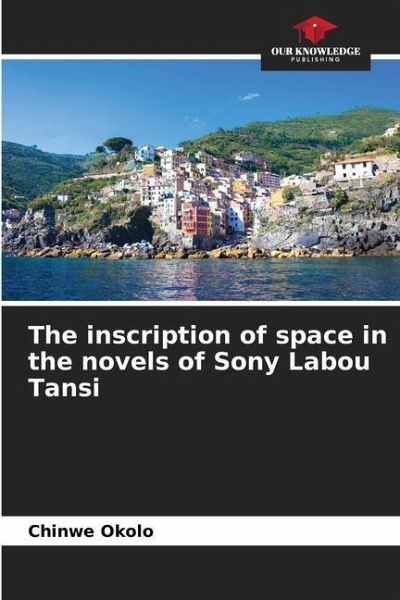
The inscription of space in the novels of Sony Labou Tansi
Versandkostenfrei!
Versandfertig in 6-10 Tagen
41,99 €
inkl. MwSt.

PAYBACK Punkte
21 °P sammeln!
Following a theoretical reorientation in literary studies in which space constitutes one of the preponderant themes in literary criticism, this study, whose theoretical framework is sociocriticism, particularly the notion of space according to Bourneuf as well as Westphal's geocriticism, analyzes the inscription of novelistic space in the novels of Sony Labou Tansi. The typology of Tansi's novelistic space, on the one hand, reveals the village, forest and river spaces of traditional pre-colonial Africa that retain the social values suitable for the flourishing of human life. On the other hand,...
Following a theoretical reorientation in literary studies in which space constitutes one of the preponderant themes in literary criticism, this study, whose theoretical framework is sociocriticism, particularly the notion of space according to Bourneuf as well as Westphal's geocriticism, analyzes the inscription of novelistic space in the novels of Sony Labou Tansi. The typology of Tansi's novelistic space, on the one hand, reveals the village, forest and river spaces of traditional pre-colonial Africa that retain the social values suitable for the flourishing of human life. On the other hand, it is the city space where these social values of yesteryear undergo anthropophagy because of the dictatorship's stranglehold on the lives of the people. The inscription of conflicting socio-electoral forces in the fictional space of our corpus proves to be significant in that social resistance in postcolonial African society finds expression there. We note a synchronic relationship betweenthe spatial system of Tansian novels and its ideology of social resistance as a means of renewing the space of postcolonial Africa.



